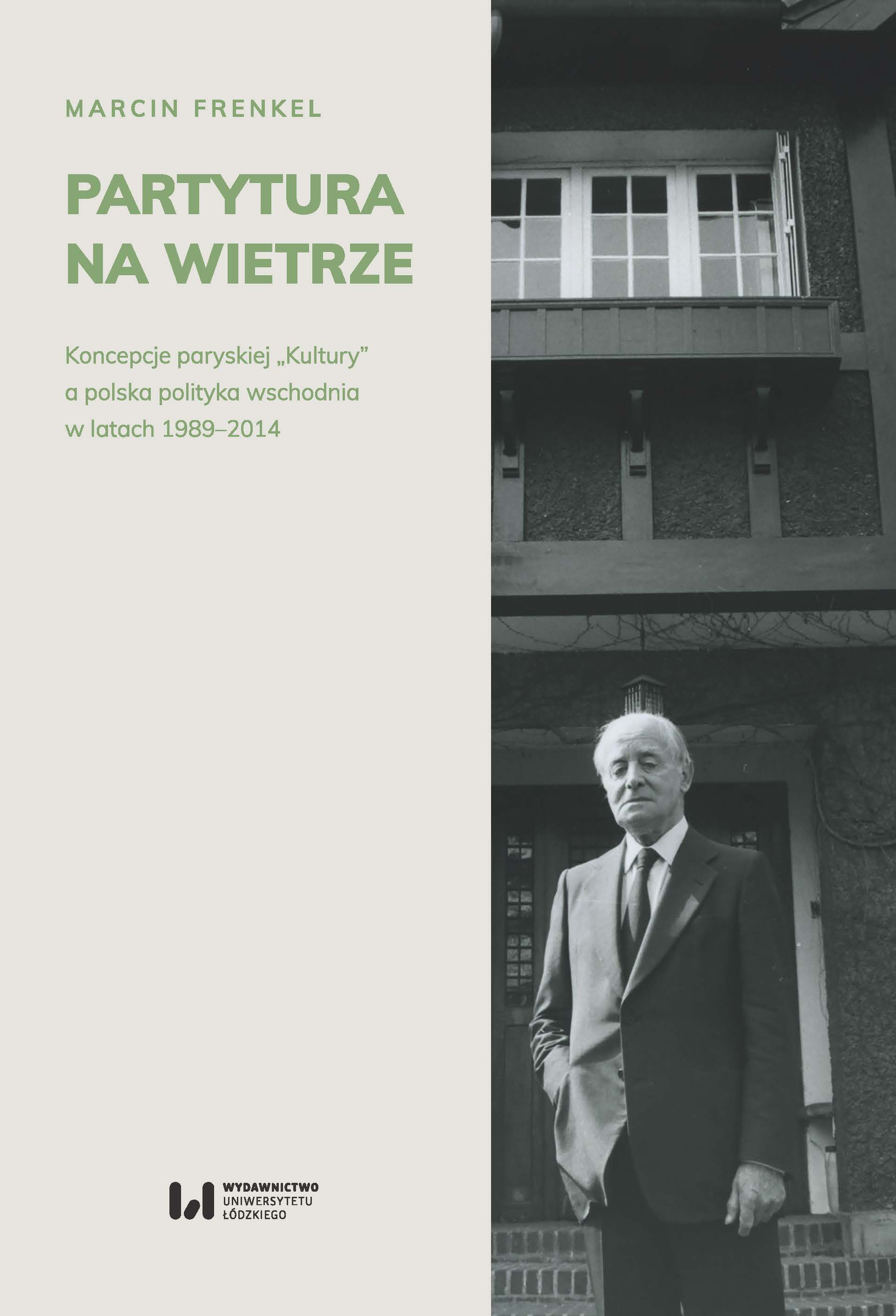Partytura na wietrze. Koncepcje paryskiej Kultury a polska polityka wschodnia w latach 1989-2014
Score in the wind. The Parisian Culture concepts and the Polish eastern policy 1989-2014
Author(s): Marcin Frenkel
Subject(s): Politics / Political Sciences, Political Sciences, Public Administration, History and theory of political science
Published by: Wydawnictwo Uniwersytetu Łódzkiego
Keywords: Polish eastern policy; Giedroyc; Mieroszewski; ULB; Parisian Culture; Giedroyc Doctrine; Eastern Europe
Summary/Abstract: The book attempts to analyze the influence of the Parisian "Culture" magazine's (in Polish: Kultura) concepts on the Polish eastern policy from 1989 to 2014. "Kultura" was established in 1946 in Rome and soon after moved to Maisons-Laffitte, a small town in the suburbs of Paris. This magazine became the most influential Polish independent "think-tank" during the cold war era. This small group of intellectuals in exile, led by Jerzy Giedroyc, the editor-in-chief of the magazine, created a strategy - so-called "The Giedroyc Doctrine" - that later became a road map for all the successive Polish governments after the fall of communism in 1989. The "Giedroyc Doctrine" can be summarized in four crucial points: I ) supporting the independence and democratization of Ukraine, Lithuania and Belarus (ULB) and preserving post-war border lines in Europe; 2) counteracting soviet/Russian imperialism, ceasing Polish-Russian rivalry for ULB territories and creating good relations with Russian liberal/democratic parties and civic movements; 3) consolidating and rebuilding of good relations with Germany; 4) integrating Poland with political, economic and military organizations of the Euro-Atlantic world. It should be underlined that Russia has been the central point of reference for the whole idea. Recognition of the above points should neutralize the threat from Russian imperialism and build a solid foundation for Poland's future security. Analyzing the eastern policy of successive Polish governments in terms of continuing or departing from the concept of "Kultura", the author refers to the above-mentioned key postulates. The research results presented in the book prove that at the given time, all subsequent Polish governments took into account and accepted the "Giedroyc doctrine". Moreover, it should be stated that throughout the first twenty-five years of the Third Republic of Poland, its foreign policy was characterized by a high degree of continuity and attachment to the idea of the Parisian "Kultura". And this policy was the subject of cross-partisan consensus. On the other hand, at the detailed (tactical) level - going beyond the general concept of foreign policy - there were certain misunderstandings of Giedroyc's doctrine
Series: Uniwersytet Łódzki
- E-ISBN-13: 978-83-8220-861-0
- Print-ISBN-13: 978-83-8220-860-3
- Page Count: 415
- Publication Year: 2022
- Language: Polish
- eBook-PDF
- Table of Content
- Sample-PDF

